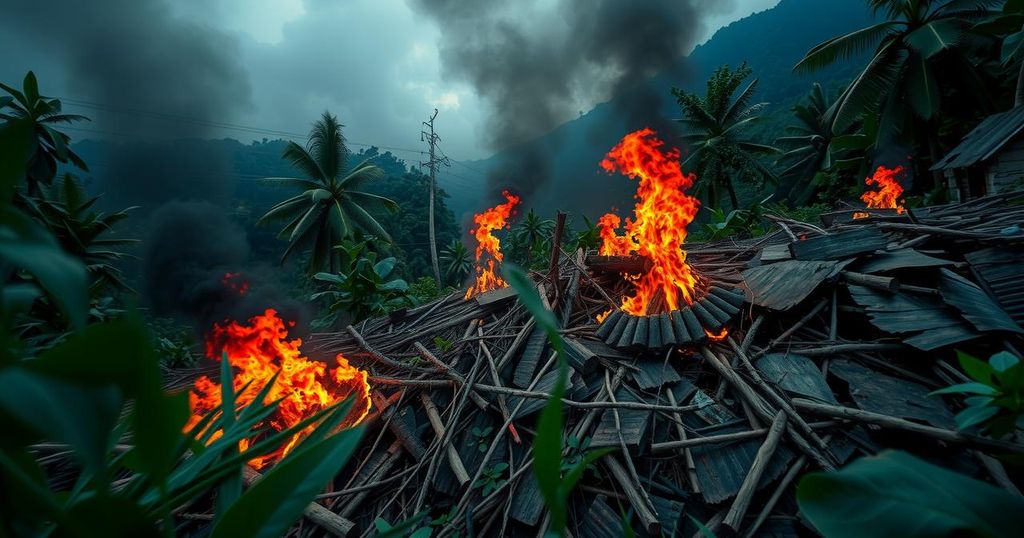Understanding the Ongoing Conflict in the Democratic Republic of Congo

The Democratic Republic of Congo’s ongoing conflict is rooted in a history of colonial exploitation, ethnic tensions, and struggles over valuable natural resources. The crisis, marked by acute violence and human rights abuses, is intensifying particularly in the east, where various armed groups operate. Measures to address governance failures, pursue justice for victims, and provide humanitarian assistance are vital to ending the conflict.
The ongoing conflict in the Democratic Republic of Congo (DRC) is a complex situation rooted in a historical context of colonialism, ethnic strife, and competition over natural resources. Following independence from Belgium in 1960, the DRC has experienced decades of violence fueled by political turbulence, corruption, and ethnic divides. Currently, the eastern part of the country remains particularly volatile, hosting over a hundred armed groups that often stem from local militias aiming to protect their communities amidst ongoing unrest. Since the 1990s, this crisis has been compounded by the legacy of colonial rule, whereby European powers arbitrarily drew borders and fostered divisions among ethnic groups to exert control. The DRC’s abundant natural resources, including coltan, gold, and diamonds, are focal points of conflict as various armed factions vie for control, often leading to extreme violence. Governance issues have also played a critical role, with the long dictatorship of Mobutu Sese Seko, marked by corruption and neglect, leaving a vacuum that armed groups have exploited. Foreign interventions from neighboring countries like Rwanda and Uganda have further complicated the geopolitical landscape, particularly following the genocide in Rwanda in 1994, which triggered a cascade of violence spilling over into the DRC. Human rights abuses have reached catastrophic proportions, with civilians frequently caught in the crossfire of armed conflicts. Reports indicate rampant sexual violence, torture, enforced disappearances, and massive internal displacement, contributing to a dire humanitarian crisis where millions lack access to basic needs such as food, healthcare, and shelter. To address the ongoing turmoil, it is essential to pursue truth, justice, and reparations for victims while empowering civil society in the DRC. Strong and effective measures of accountability for perpetrators of violence must be instituted to break the cycle of impunity that exacerbates conflict.
The Democratic Republic of Congo is steeped in a turbulent history that dates back to its colonial era, which profoundly influences its current conflicts. Post-independence strife primarily stems from internal divisions, ethnic considerabilities, and the struggle over vast natural resources. These factors have been exacerbated by foreign interventions and governance failures, creating an environment ripe for violence and instability. The legacy of colonial exploitation continues to haunt the region, complicating ethnic relations and economic opportunities, thereby perpetuating a cycle of violence.
The Democratic Republic of Congo’s conflict is a multifaceted issue exacerbated by historical injustices, resource exploitation, poor governance, and foreign intervention. Addressing this complex situation requires a concerted effort toward justice, reparations, and humanitarian assistance. By recognizing the painful histories of its citizens and fostering accountability, there is hope for breaking the cycle of violence and paving the way for lasting peace in the DRC.
Original Source: www.amnesty.org








